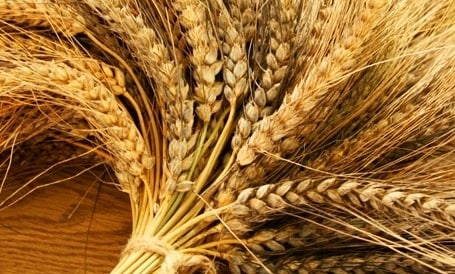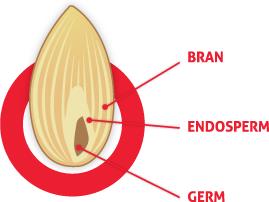Love your cereal

What’s in our cereal?
When making our cereal, we start with kernels of whole wheat, corn grits, whole oats or milled rice. We then add quality ingredients to boost the flavour of the grains. Our diverse varieties of cereals mean that you’ll always be able to find a variety that meets your nutritional needs and tastes great too.
General Nutritional Information
You’ll notice that some ingredients appear in many Kellogg’s products. You’ll also see phrases that commonly appear on cereals, so we thought we’d explain what we mean by these.
Fibre
Fibre is an essential part of our daily diet. Fibre refers to a number of compounds found in plant-based foods such as cereals, and travels through our digestive system largely untouched. There are two types of fibre:
|
Usually found in cereal grains, insoluble fibre helps keeps us regular. It works by making stools larger and thus easier to pass. |
|
Found in oats and oat bran, barley and psyllium, soluble fibre can help lower cholesterol reabsorption. |
The recommended Daily Intake (DI) of fibre is 30g – but how do we achieve that? Foods that have 6g of fibre or more per serve are considered to be an ‘excellent’ source of fibre, while those with 3–6g are ‘good to high’ sources. Did you know wheat bran is one of the richest sources of fibre around?

Wholegrains
Wholegrains such as whole varieties of wheat, barley, oats, corn, rye and triticale include the bran (fibre-rich outer layer), the germ (nutrient-rich inner core) and the endosperm (middle starch and protein layer) of the grain. When grains are refined, the bran is removed which means much of the dietary fibre, vitamins, minerals and phytoestrogens, phenolic compounds and phytic acid are removed too.
Glycaemic Index (GI)
The term ’GI’ is used a lot on food packaging – but what does it really mean, and what should you look for in the supermarket? GI stands for ‘Glycaemic Index’ – a ranking of foods from 0–100 that tells us how fast or slowly carbohydrates in a particular food are digested and absorbed. The lower the ranking, the slower the food is digested and the less effect it has on blood sugar levels.
CONTACT US
If you’re a journalist and want to get in contact,
then call us on 0161 869 5500 or
email pressoffice@kellogg.com.
Our of hours Press Office:
Our press office is staffed from 09:00 – 17:30, outside of
this please call the duty press officer on 07834 445418.
Follow us on Twitter
KelloggsUKNot a member of the press? Then call our consumer careline free on 0800 626 066.
Meet the Media team




